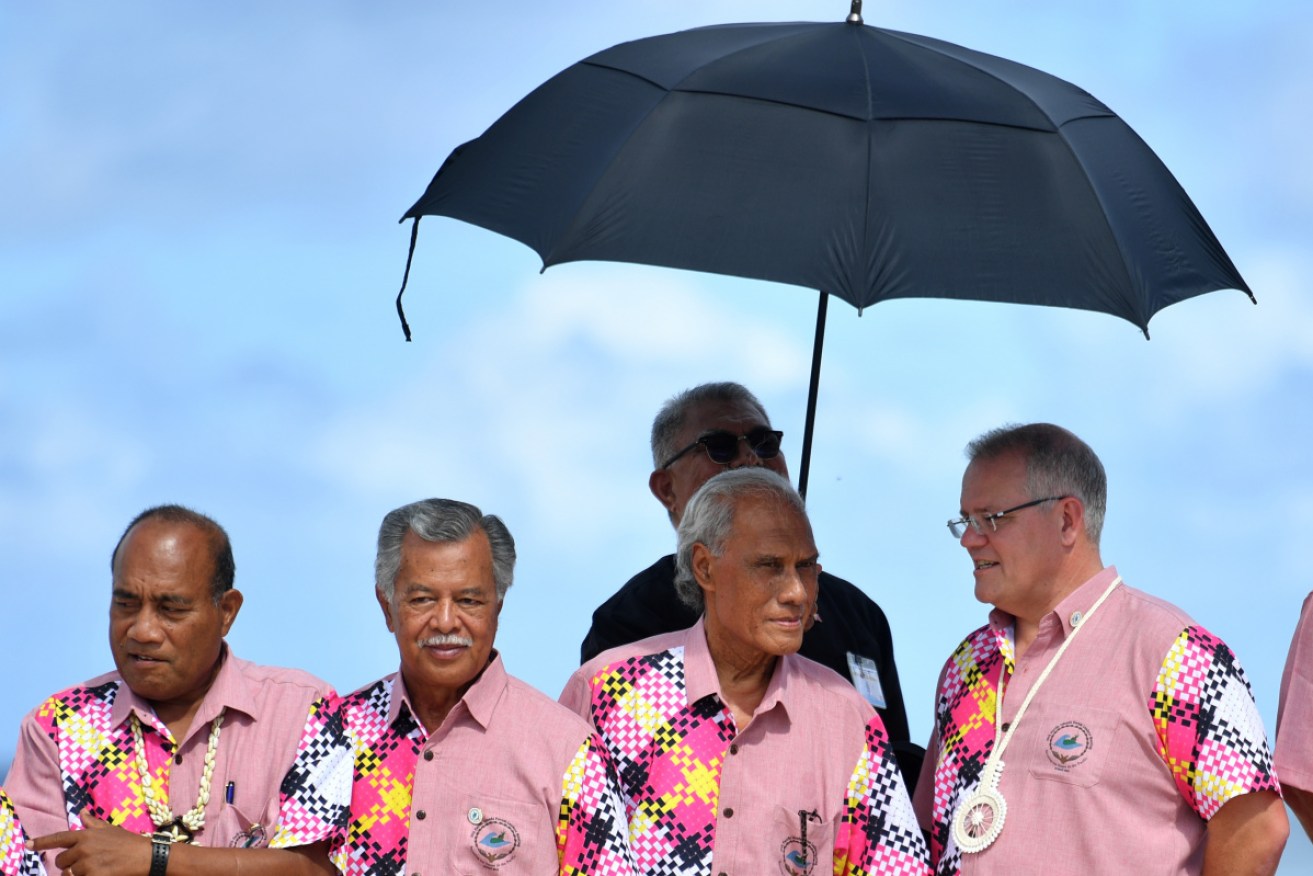Pacific leaders to pile climate pressure on Scott Morrison

Scott Morrison with other leaders in Tuvalu for the 2019 Pacific Islands Forum Photo: AAP
Prime Minister Scott Morrison will face pressure from Pacific Island countries to take stronger action on climate change at a meeting of the region’s leaders on Friday.
The virtual meeting, initiated by Tuvalu, comes on the eve of a United Nations-led summit aimed at getting all countries to commit to reaching net-zero emissions by 2050.
Pacific nations want Australia to cut its emissions further, as well as help them advocate for stronger action on climate change globally.
But Mr Morrison has indicated he will not accede to pressure, either from Pacific countries or the international community.
“Australia’s climate and energy policy will be set here in Australia, in Australia’s national interest, not to get a speaking slot at some international summit,” he said in Parliament on Thursday.
The UN’s Climate Ambition Summit on Saturday aims to encourage climate action by giving speaking slots to leaders who make significant new contributions to emissions reduction.
UN Secretary-General António Guterres said he was seeing “a promising movement for carbon neutrality … taking shape”.
“While the COVID-19 pandemic has temporarily reduced emissions, carbon dioxide levels are still at record highs and rising,” he said.
“We need to build a truly global coalition for carbon neutrality by 2050.”
But Mr Morrison has dismissed the 2050 goal, maintaining the government’s position that Australia will reach carbon neutrality sometime in the second half of this century.
“What matters is … not how many speeches you give, not how much ambition you declare,” he said.
“I may have an ambition to play front row forward for the Wallabies, but that ambition won’t be realised.”
Critics say Australia pinning future to ‘jobs of the past’
Instead, Mr Morrison hopes to promote the government’s Technology Investment Roadmap, which involves investing in the development of low-emissions technologies, such as hydrogen power, carbon capture and storage, and soil carbon measurement.
Australia’s current commitment is to reduce emissions by 26 to 28 per cent by 2030, based on 2005 emissions levels.
In contrast, Britain recently announced it will cut emissions by 68 per cent by 2030, based on 1990 emissions levels.
US President-elect Joe Biden has committed to reaching net-zero emissions by 2050, along with Britain, EU, Japan and South Korea, with China committing to a 2060 timeframe.
The Australian Conservation Foundation’s climate change program manager Gavan McFadzean said refusing to commit to net-zero emissions by 2050 is contrary to the national interest.
“It is exactly the climate and energy policy you would have if you were determined to wreck Australia’s environment and Australia’s economy,” he said.
“It leaves us hinging our future to the jobs and technologies of the past – in coal and gas – rather than the jobs and technologies of the future.”








